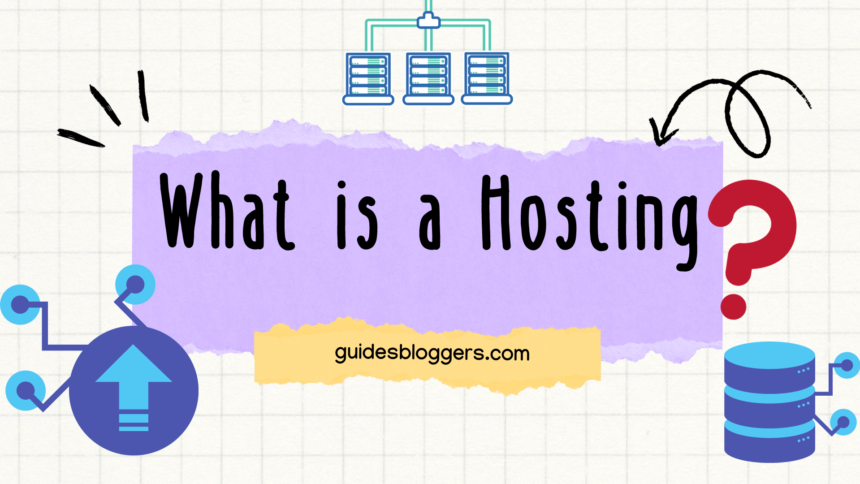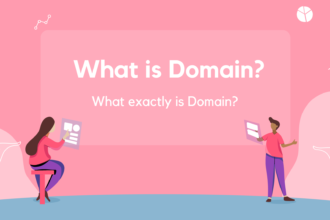Introduction
Understanding Web Hosting: The Basics
What is hosting? Web hosting is like the home where your website lives. It’s the place on the internet where all your website files, including HTML, CSS, and images, are stored. a more technical level, web hosting involves servers – powerful computers dedicated to storing your site’s data and making it available to visitors around the world.
The Importance of Web Hosting for Websites
Choosing your home in the online world is as important as the physical one you live in. It impacts vital aspects like site speed, security, and uptime. No matter how well designed, a slow-loading site is an instant turn-off for visitors.
Different Types of Web Hosting
Web hosting comes in various flavors: shared, dedicated, VPS, and cloud hosting. Each has its strengths and downsides. The right one for you depends on your site’s requirements and budget. But don’t worry, we’ll take a stroll through each one next.

Shared Hosting
Definition and Key Characteristics of Shared Hosting
Shared hosting is like living in an apartment complex. You share resources (like server space) with other websites. It’s a popular choice for beginners due to its affordability and simplicity.
Pros and Cons of Shared Hosting
The significant boons of shared hosting are its low cost and user-friendly control panels. However, the shared nature means your site’s performance can be affected by the ‘noisy neighbors’ – other sites hogging the resources.
Determining When Shared Hosting is the Best Fit for You
If you’re just started out or have a small website with modest traffic, shared hosting is an excellent choice. It’s affordable, straightforward, and good enough until your site starts to grow.
Dedicated Hosting
Understanding Dedicated Hosting: An Overview
Opting for dedicated hosting is like owning your large house. You get an entire server just for your website, meaning all the resources are dedicated to ensuring top-notch performance for your site.
The Advantages and Disadvantages of Dedicated Hosting
The biggest advantage is performance – your site can handle large volumes of traffic and load quickly. The drawback? It’s expensive and requires more technical knowledge to manage effectively.
Identifying If Dedicated Hosting Is Your Strategy
If you have a large website with hefty traffic or need advanced customizations and controls, dedicated hosting is the way to go. That said, it’s not recommended for beginners due to its technical demands and costs.
Virtual Private Server (VPS) Hosting
A Closer Look at Virtual Private Server Hosting
Think of VPS hosting as living in a condominium. While you share the property, you have your dedicated resources that other residents can’t intrude on. This means your site couldn’t potentially be affected by other neighbouring websites.
Examining the Benefits and Drawbacks of VPS Hosting
VPS hosting provides balanced performance and cost. You get more resources compared to shared hosting, and it’s cheaper than dedicated hosting. However, managing a VPS needs a tad of technical knowledge.
Assessing If VPS Hosting Suits Your Needs
Medium-sized businesses, developers, or websites needing more power than shared hosting can offer but can’t quite afford dedicated hosting will find VPS hosting the ideal fit.
Cloud Hosting
Getting to Know Cloud Hosting
Cloud hosting is kind of like AirBnB. Instead of one server, your site can tap into a network of servers (the ‘cloud’). This ensures top site performance and unlimited scaling opportunities.
Weighing the Upsides and Downsides of Cloud Hosting
Cloud hosting delivers excellent performance, scalability, and uptime. But it’s pricing model, usually pay-for-what-you-use, can become expensive if not monitored.
Defining Whether Cloud Hosting is Right for Your Website
If your site experiences irregular or high traffic spikes (think seasonal businesses) or you’re planning rapid growth, cloud hosting is worth considering.
How to Choose the Right Web Hosting for Your Needs
A Guide to Requirements Analysis: Speed, Storage, Traffic and More
Choosing a host comes down to your needs. Questions like your expected traffic, need for speed, storage requirements, and budget are essential points to consider.
Comparing the Different Hosting Options: A Recap
From the shared simplicity to the dedicated powerhouse, or the VPS middle ground to the advanced cloud, there’s a hosting type suited to everyone.
Budgeting for Your Host: Balancing Cost and Features
Web hosting is an investment, not an expense. Going for cheap can sometimes mean compromising essential features. Prioritize on a balanced combination of performance and affordability.
Summary and Conclusion
Recap of the Fundamental Concepts and Types of Web Hosting
Web hosting is the digital home to your website. It has various types – shared, dedicated, VPS, and cloud, each with their own pros and cons.
Making an Informed Decision on Hosting Choice
Identify your website’s needs, compare different options, and balance between cost and performance to zero in your ideal hosting choice.
Closing Thoughts on Web Hosting
Web hosting is the groundwork of your online presence. It might sound technical, but understanding it goes a long way in ensuring successful website operations.
FAQ
What is the Difference Between a Domain and a Host?
The domain is your website’s address, where web hosting is your site’s home – a place where it is stored and accessed.
Can I Change My Web Hosting Service Later?
Certainly! You can switch web hosting providers if you’re unsatisfied with your current one.
How Does Server Location Affect My Website?
Server location can impact site speed and SEO. It’s generally best to host your website close to where the majority of your audience is.












